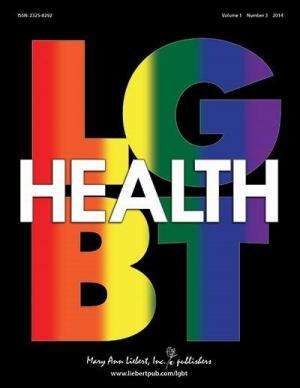Credit: Mary Ann Liebert, Inc., publishers
The challenges in providing psychotherapy to individuals with autism spectrum disorders (ASD) who also are struggling with their gender identity are explored in two case studies of high-functioning persons with diagnoses of ASD and gender dysphoria (GD). The authors describe the unique complexities presented by these two diagnoses and offer suggested techniques for helping these individuals explore their gender identities in an article in LGBT Health.
New York, NY-based psychotherapist Laura A. Jacobs, LCSW, and coauthors from New York University and private practice explain why characteristics of ASD, such as the limited ability to express feelings, difficulty with social interaction and impaired theory of mind, as well as the intolerance of ambiguity, may present special difficulties for gender identity formation in persons with GD. However, in the article "Gender Dysphoria and Co-Occurring Autism Spectrum Disorders: Review, Case Examples, and Treatment Considerations," the authors suggest that high-functioning individuals with ASDs and GD can be good candidates for gender transition and can benefit from it.
"While much has been written recently on the co-occurrence of GD and ASDs, few case histories or papers discussing treatment have been published to date, gaps that this article addresses," says Editor-in-Chief William Byne, MD, PhD, Icahn School of Medicine at Mount Sinai, New York, NY. "The article also underscores that while the presence of an autism spectrum disorder poses particular issues that must be addressed, it does not preclude gender transition."
More information: The article is available free on the LGBT Health website until January 2, 2015.
Provided by Mary Ann Liebert, Inc





















